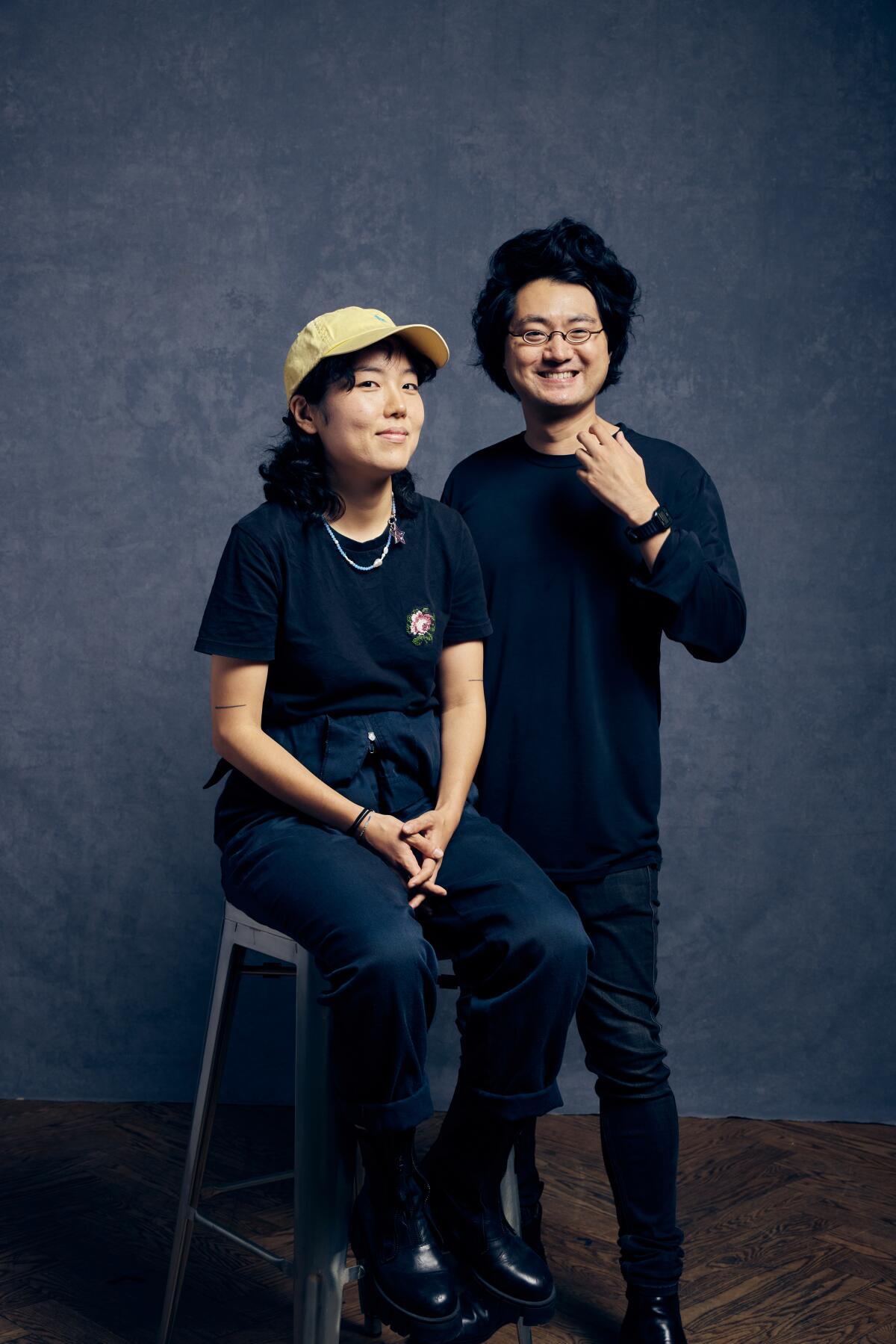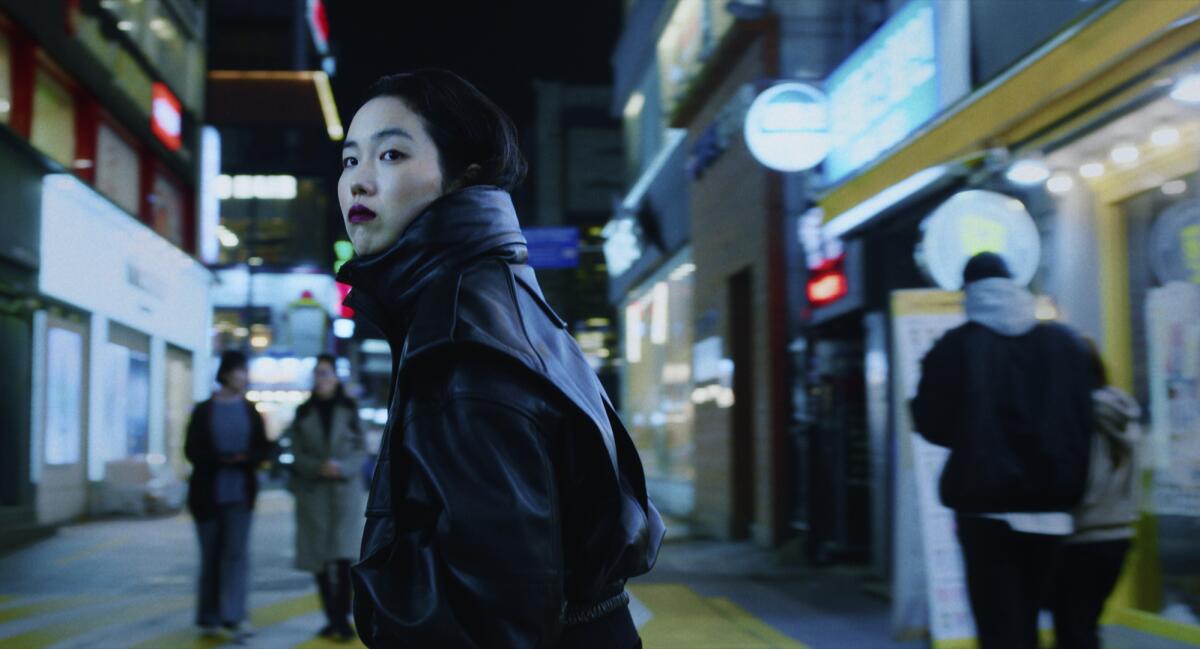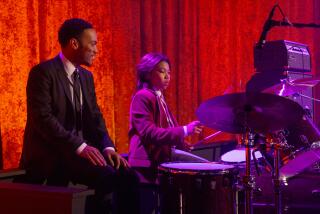‘Return to Seoul’s’ behind the scenes tale of the reluctant movie star

“Return to Seoul” filmmaker Davy Chou doesn’t like to give up on his instincts. Casting had proved difficult for the role of Freddie, a young Frenchwoman of Korean origin, thrown into a turmoil of identity on a spontaneous trip to South Korea.
Until, on a friend’s hunch, the Cambodian-French Chou met Paris-based visual artist Park Ji-Min — not an adoptee like Freddie but as a Korean raised in France, attuned to the feeling of cultural duality. Over a three-hour coffee of life experiences, and a subsequent casting test, Chou saw his fierce, flinty character. “It was a raw, emotional force, between vulnerability and anger,” recalls Chou, who sensed an uphill battle, however, in convincing Park to take the role. She’d never acted before and wasn’t terribly keen on doing the movie.
Cue her “until” moment, which involved securing changes to the script’s portrayal of a modern Asian woman. “The day I trusted Davy was the day he accepted to work on his script together,” says Park, who took issue with described clothing choices, behavior with the story’s male characters and lines that to her perpetuated a male view. “There are not many Asian women in European movies, and the few that are, are always sexualized and objectified. Why follow those cliches again?”
Chou didn’t always agree with Park, but their granular deconstruction produced a blueprint for Park to give one of the year’s most acclaimed performances, spanning years and full of sly humor, darkness, fear and hard-won poise. “Freddie has a lot of anger inside her, that’s for sure, but it’s not coming out of nowhere,” says Park, who describes her own world of being Asian in a white society as one full of “violence.” In Freddie, whose cautious search for her birth parents sets the movie’s events in motion, Park sees someone afraid of staying still. “She needs to move constantly because that’s her only way to feel free.”

Freddie’s unpredictability is what intrigued Chou as a filmmaker. “I was obsessed in the preparation with the idea of chaos and control,” he says. “How to film someone trying to control the chaos. The heavy topic of identity has so many cliches, preconceived ideas of reconciliation and closure. So to have such a happily destructive character was stimulating.” The film is Cambodia’s submission for the Oscars’ international film prize.
Chou is talking from Phnom Penh and Park from Paris, but even over Zoom their vibe is of a conversation having been picked up from a previous time, as if that initial three-hour coffee was what cemented their friendship, not arguing over a script or forging a great film. They text every day, and Park is comfortable teasing Chou in front of an interviewer about the director’s long, detailed answers. When asked what was surprisingly difficult about acting, Park deadpans, “Not to care much about what Davy was saying to me, maybe?” The response has them both laughing, although Chou’s comes a beat late, as if to make sure this was an attempt at humor.
But even that affectionate jab spurs Chou to a serious consideration of how meaningful their push-pull working relationship was to making Freddie’s particular turbulence come alive. Chou said it took a response from the great French filmmaker Claire Denis, upon seeing “Return to Seoul” in Paris, to crystallize for him what Park was embodying onscreen.
“She said what was surprising for her is that she could see an actress who was resisting against the film, against the camera,” says Chou. “And I think that’s right. You see someone who wants to be free of the frame, and that’s Freddie in the film.”
Park, a huge Denis fan, felt the director had found the “exact words” for what her acting was. “I was like, ‘Whoa. So cool.’”
The way Park herself speaks about acting, it’s with the weariness and respect of someone who experimented with something once. Asked whether he thinks Park will ever act again, Chou answers with his own needling parry toward the new friend/collaborator who likes challenging him. “I know Ji-Min pretty well now,” he says, “so if I say ‘Yes, she will act,’ that is the best way [to make sure] that she will never act again! But I am saying the truth, I will say, I think she will act again.”
While Chou is talking, Park looks ready to pounce at any moment. “You think I will act again? Is that what you said?”
“No,” Chou says. “No chance. She really hated it.”
Park laughs with a hint of just-you-wait, adding, “I know him, he is provoking me!”
The sincerity returns, though, when Chou acknowledges how much Park gave of herself on so pressurized and demanding a shoot, one whose emotions almost mirrored Freddie’s journey of reluctance, intensity, and peace. “I feel as if Ji-Min was doing some Method in one sense, putting all her pain on screen, without any technique,” Chou says. “Every day she delivered, and I’m so proud that this emotion we received on set is now shared with a global audience.”
Park agrees that by the end, she had filming days with her fellow actors that were more playful and magical. “I’m so grateful and thankful for the other actors, who gave me so much,” she says, while acknowledging that her one experience was enough to realize acting is as exhausting as any other form of art. “It demands your whole body to express deep feelings,” she says. “So much energy, concentration. But you keep pushing because you feel this strange, powerful energy. All creation is like that.”
More to Read
From the Oscars to the Emmys.
Get the Envelope newsletter for exclusive awards season coverage, behind-the-scenes stories from the Envelope podcast and columnist Glenn Whipp’s must-read analysis.
You may occasionally receive promotional content from the Los Angeles Times.








